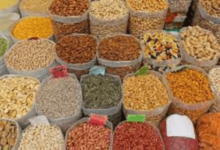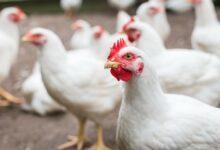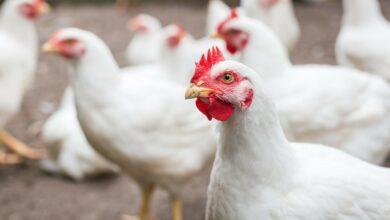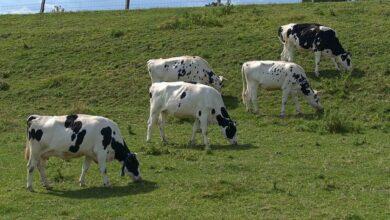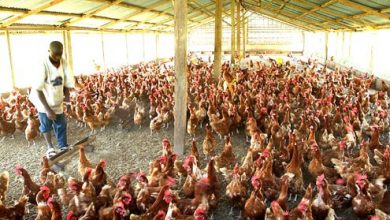
10 Factors Affecting Agricultural Mechanization in Nigeria.
Factors Affecting Agricultural Mechanization in Nigeria- Government policy, access to funding, infrastructure, and the availability of suitable technology are only a few of the elements that have an impact on agricultural mechanization in Nigeria. The vast and varied topography of the nation, together with the modest scale of many farm enterprises, create obstacles to the widespread use of automation. Additionally, the efficiency of mechanization initiatives may be constrained by the absence of a defined system for the distribution and maintenance of equipment. Factors Affecting Agricultural Mechanization in Nigeria.
Despite these obstacles, initiatives to promote agricultural mechanization in Nigeria have the potential to raise crop yields, enhance farm productivity, and aid in the nation’s economic growth.
👉 Relocate to Canada Today!
Live, Study and Work in Canada. No Payment is Required! Hurry Now click here to Apply >> Immigrate to CanadaRead Also: 10 Factors Affecting Agricultural Extension Services In Nigeria
Definition of Agricultural Mechanization.
Mechanization in agriculture is the practice of using tools and machines to boost production and efficiency in farming activities. Among the tools used for planting, growing, and harvesting crops are tractors, plows, harvesters, and other tools. Technology use for irrigation, clearing land, and other duties is also included. Increasing yields and lowering the amount of human work needed are the two main objectives of agricultural mechanization. Information Guide Nigeria
Types/Forms/Categories of Agricultural Mechanization.
There are several kinds, types, and categories of agricultural mechanization, including:
- Mechanization based on tractors: This type of mechanization uses tractors to carry out operations like plow, plant, harvest, and haul.
- Mechanization based on animals: In this sort of mechanization, agricultural chores are carried out by animals like horses or oxen.
- Hand-held mechanization: This group comprises implements used for planting and harvesting crops, such as hoes, plows, and harvesters.
- Mechanization of irrigation systems includes the use of tools like pumps and irrigation controllers, as well as other machinery and equipment. Romantic Love Messages
- Mechanization used to process and store crops after they have been harvested, such as threshers, dryers, and storage facilities, is referred to as post-harvest mechanization.
- In order to maximize crop yield and cut down on inputs, precision agriculture employs technologies like GPS, remote sensing, and variable rate application.Do Not Drag Newsmen into Your Politics, Kogi NUJ Cautions Politicians
To maximize farm output and efficiency, these types and categories of agricultural mechanization can be blended and integrated into many ways.Chelsea manager news: Mykhailo Mudryk reveals his favourite for next boss
Read Also: 10 Factors Affecting Curriculum Innovation in Nigeria
Advantages of Agricultural Mechanization.
- Agricultural mechanization may significantly improve the effectiveness and production of farming operations.
- Mechanization can reduce the amount of physical work necessary for farming jobs, freeing farmers to concentrate on other areas of their businesses.
- Mechanization can increase agricultural quality by minimizing crop damage during planting and harvesting.
- Lower cost of production: By requiring less human work and boosting productivity, mechanization can result in cost savings.
- Mechanization can improve working conditions for farmers by eliminating the need for physically demanding manual labor.
- Precise farming is made easier by mechanization, which lets farmers to use methods like variable rate application and precision planting.
- More environmentally friendly farming: By lowering the use of chemical inputs and boosting productivity, mechanization can assist farmers in putting environmentally friendly agricultural techniques into effect.
Read Also: 10 Factors Affecting Curriculum Development In Nigeria
Factors Affecting Agricultural Mechanization in Nigeria.
- Credit accessibility: In Nigeria, the adoption of agricultural automation is greatly influenced by credit accessibility. Farmers might not be able to pay the initial expenditures of buying and maintaining machinery without access to loans. NYSC Portal
- Infrastructure: For the efficient operation of agricultural machinery, adequate infrastructure, such as roads and power supplies, are required. Transporting and powering machinery to farms may be difficult or expensive due to inadequate infrastructure.
- The degree of agricultural automation in Nigeria may be significantly impacted by government policy. Farmers may be encouraged to adopt mechanization, for instance, through legislation that offer subsidies or tax benefits for the purchase of machinery.
- Technical proficiency: In order to utilize and maintain agricultural machinery efficiently, farmers must possess the necessary technical proficiency. Farmers could be less likely to employ automation if they don’t know this.
- Socioeconomic Variables: A farmer’s decision to adopt automation can be influenced by socioeconomic factors including income, level of education, and access to markets.
- Land fragmentation: Using huge machinery on small pieces of land can be challenging. This issue may deter Nigerian farmers from using automation. Good Morning Love Message
- Climate: The usage of agricultural machinery in Nigeria may be impacted by the climate. For instance, using large machinery on fields may be challenging during periods of excessive rains.
- Market demand: The adoption of mechanization in Nigeria might be influenced by the demand for a particular agricultural commodity. Farmers may be more prone to use automation to boost output if there is a significant demand for a commodity.
- Customary land tenure: The community ownership-based customary land tenure system in Nigeria may deter farmers from engaging in mechanization since it leaves them uncertain of their land rights.
- Technical assistance: Having access to technical assistance, such as training and maintenance services, is crucial for using agricultural machinery effectively. Farmers could be less willing to accept automation without this backing.
- Read Also: 10 Factors Affecting Unemployment In Nigeria
Conclusion:
In conclusion, there are several elements that have an impact on Nigeria’s agricultural mechanization. These include the availability of financing, infrastructure, governmental legislation, technical expertise, socioeconomic considerations, climatic change, market demand, the traditional land tenure system, and technical support. The two key issues that must be addressed are infrastructure and financial availability. JAMB Portal
Government programs that offer financial assistance or tax breaks for the purchase of machinery can persuade farmers to get fully mechanized. Farmers must have technical expertise and help in order to operate and maintain machinery.
👉 Relocate to Canada Today!
Live, Study and Work in Canada. No Payment is Required! Hurry Now click here to Apply >> Immigrate to CanadaRead Also: 10 Factors Affecting National Security in Nigeria
A farmer’s decision to use automation can also be influenced by socioeconomic variables including money, education, and market accessibility. The level of automation adopted in Nigeria might be influenced by the demand for a particular agricultural crop. Nigeria’s climate and land fragmentation are additional elements that may deter farmers from implementing mechanization.
Farmers’ investment in automation may be discouraged by the traditional land tenure structure. Addressing these issues might enhance Nigeria’s use of agricultural automation, which would raise agricultural output and efficiency.
Check JAMB RESULT
Check and Confirm: How much is Dollar to Naira
